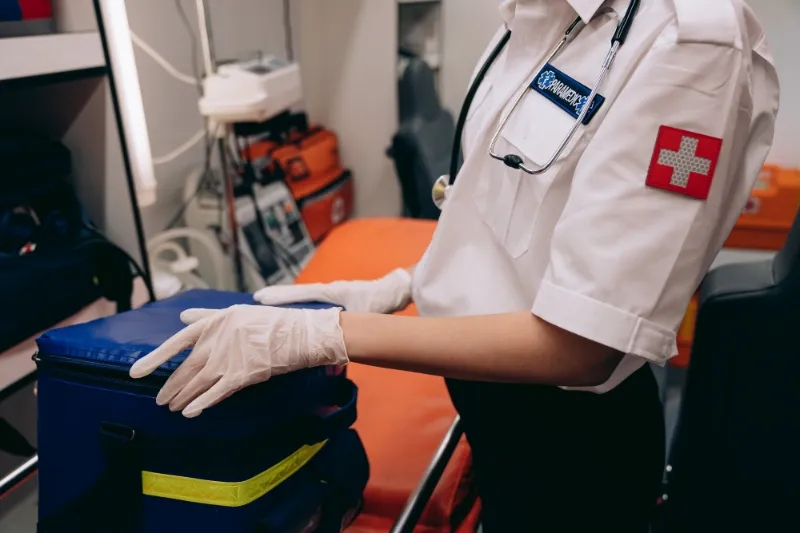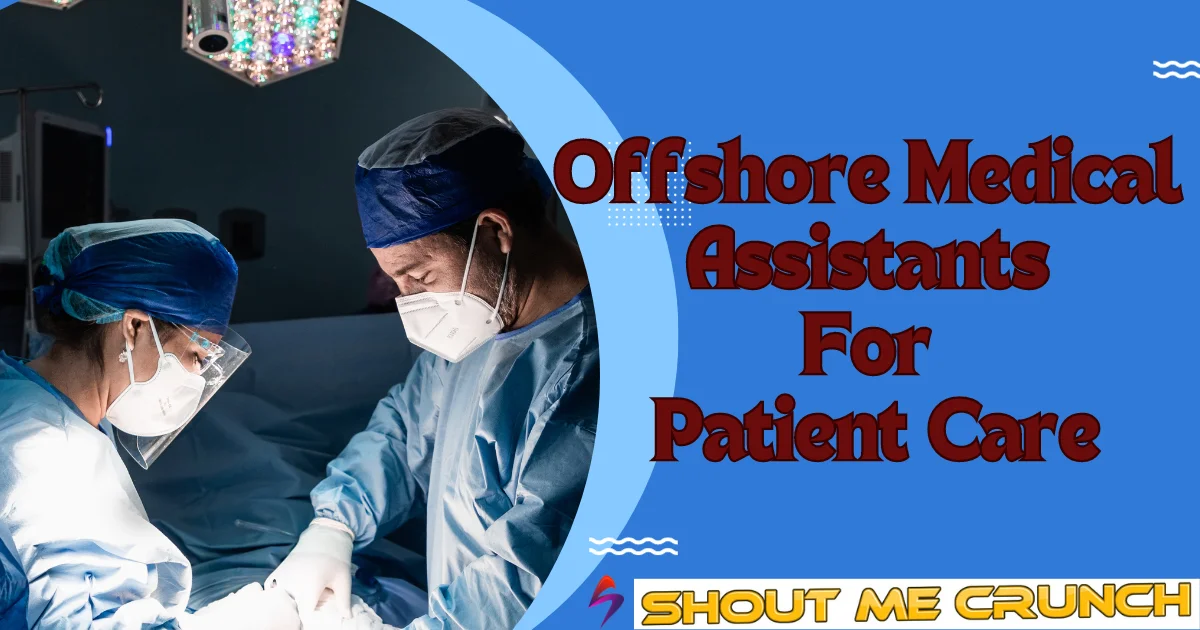In an increasingly globalized healthcare environment, medical practices embrace the collaboration of offshore medical assistants to bolster patient care services. These assistants work remotely, often from different countries, and are integrated into the healthcare delivery model to extend the quality and reach of healthcare services.
What Are the Offshore Medical Requirements?
To work as an offshore medical assistant, one must be both competent and compassionate. This position entails providing healthcare in remote and diverse environments, which may be both rewarding and challenging. As a result, a solid educational background in healthcare, such as nursing or medicine, is required.
To meet healthcare standards, one must also secure the necessary licenses and certifications. Offshore medical assistants receive specialized training to equip them for the unique challenges of working offshore. Furthermore, because they are frequently the initial point of contact for care, they must have a compassionate approach and a dedication to patient well-being. These are the primary qualifications for anyone interested in venturing into the realm of offshore medical aid.
What Skills Do You Need to Work Offshore?
Offshore medical assistants are individuals who provide remote healthcare to patients all around the world. In an ever-changing healthcare scene, offshore medical assistants are the unsung heroes. They collaborate across time zones to provide global patient care and improve clinic accessibility.
By managing administrative responsibilities with accuracy and efficiency, they allow on-site workers to focus on direct patient care. They also promote a continuous cycle of treatment from first assessments to follow-up visits, allowing each patient to have a more personalized and culturally sensitive healthcare experience.

Offshore medical assistants are more than just aides; they are healthcare change agents. Offshore medical assistants are knowledgeable in both the technical and human elements of healthcare, which helps them succeed and be recognized in their rewarding profession.
Is It a Virtual Medical Service?
Offshore medical assistance is more than a service; it is a method of delivering healthcare to those in need, no matter where they are. Healthcare experts can use technology to extend their expertise beyond boundaries, reaching patients in remote parts of the world.
Offshore medical assistants play an important role in this process since they communicate with patients, manage administrative responsibilities, and give clinical care from a remote location. This is an outstanding example of how virtual networking may overcome distance obstacles and make healthcare a seamless, accessible experience. Offshore medical help is more than simply a captivating story; it is a virtual embrace that offers healthcare to those in need.
Patient Satisfaction: The Offshore Advantage
In a changing world, offshore medical assistants are the unsung heroes of healthcare.They free up on-site professionals to focus on direct encounters by providing patient care across time zones. They improve the quality and efficiency of healthcare services rather than simply providing help. From first consultations to follow-up visits, they are specialists who can provide access, cultural awareness, and treatment continuity.
Enhanced Accessibility and Efficiency
One of the core ways offshore medical assistants improve patient care is by enhancing accessibility. With the support of these professionals, clinics can extend their operating hours due to time zone differences, allowing patients to receive care and support outside of traditional hours. This increased availability directly translates to improved patient satisfaction as access to medical assistance becomes more convenient.

Moreover, hiring offshore medical assistants can help streamline the efficiency of medical practices. Taking on administrative tasks frees on-site staff to focus more on clinical care and patient interaction.
This redistribution of workload can reduce wait times and a quicker transition from patient arrival to treatment, which is critical for optimal patient care.
The Role in Administrative Precision
Maintaining accurate patient records is pivotal for the delivery of high-quality healthcare. Offshore medical assistants play a significant role in ensuring the information is updated, organized, and reviewed for accuracy. Their diligence in handling administrative tasks—such as data entry, appointment scheduling, and insurance processing—supports the intricate web of patient care behind the scenes.
A medical practice that upholds administrative precision can reduce errors and improve the overall safety of patient care. With the administrative responsibilities in the capable hands of offshore assistants, on-site healthcare providers can devote more time to patient care, knowing that the backbone of their service—accurate and reliable documentation—is secure.
Support in Clinical Duties
Beyond administration, offshore medical assistants can also provide support with clinical duties that do not require their physical presence in the clinic. They can manage preliminary assessments, collate patient history, and prepare the information needed for upcoming visits. This preparatory work ensures that healthcare providers comprehensively understand the patient’s needs before the consultation begins.

In addition, offshore assistants can follow up with patients post-visit to check on their recovery, understand their concerns, and communicate any necessary information to the healthcare provider. This continuous cycle of care and communication can lead to improved health outcomes and more personalized patient experiences.
Quality Control and Patient Follow-up
Another critical aspect of offshore medical assistants’ roles is quality control and patient follow-up procedures. They can oversee care coordination, manage referral appointments, and track the results of diagnostic tests. This attention to detail ensures that patient care pathways are followed meticulously and all healthcare providers involved in a patient’s care are kept informed.
Regular follow-up is essential, especially for patients with chronic conditions, as it helps monitor their health status. Offshore assistants can be assigned to keep track of these patients, remind them of their medications, and provide education on lifestyle modifications, all of which can profoundly impact patient care quality.
Cultural Competency and Patient Education
Medical practices often serve diverse populations with varied health beliefs and language needs. Offshore medical assistants, with their diverse cultural backgrounds, bring a wealth of knowledge that can help bridge cultural gaps. They can assist in creating educational materials that are culturally sensitive and in languages that are accessible to the patient population.
Offshore medical assistants facilitate better understanding and compliance with medical advice by educating patients in a manner that resonates with their cultural context. Patient education is vital in managing expectations, dispelling myths, and encouraging proactive health management.
Conclusion
In conclusion, integrating offshore medical assistants into healthcare teams has shown tangible benefits for patient care. Remote healthcare experts serve a variety of functions and provide numerous benefits. They improve medical service accessibility, efficiency, and accuracy. They also allow for more adaptable and culturally appropriate patient care. This is a fantastic opportunity for both healthcare practitioners and those in need of their assistance. I altered the vocabulary and sentence structure to make the text more welcoming and engaging.


